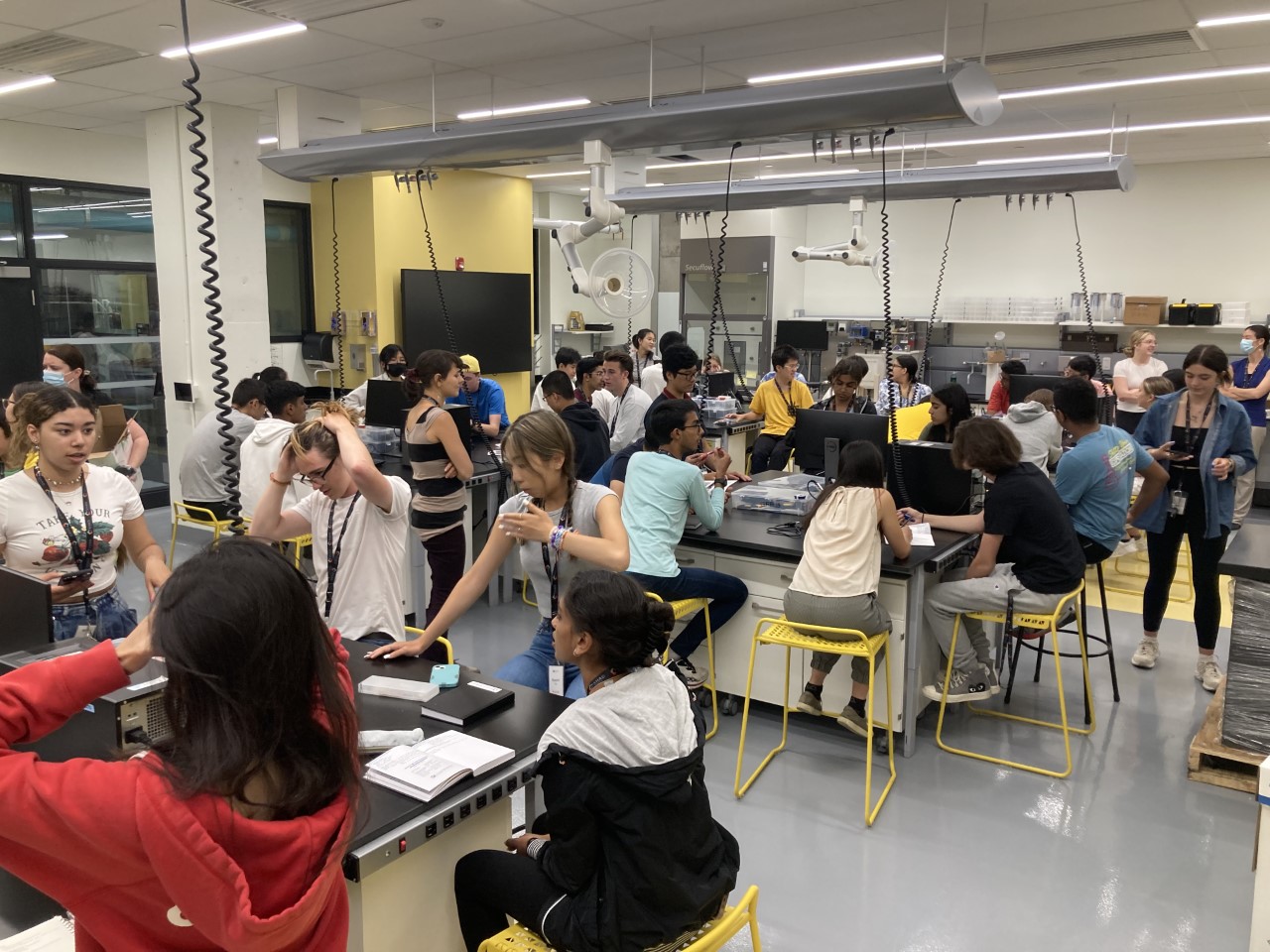
For many people, summer means spending more time with the kids. This July, Stefanie Blain-Moraes and Chris Moraes took it to the extreme, chaperoning 48 high school students as part of the Shad Canada program.
Each year, Shad provides the opportunity for over 1,000 students from across Canada to attend a month-long live-in summer enrichment program at one of 21 Canadian host universities, focused on STEAM (science, technology, engineering, arts & math). The participants are secondary school students (grades 10 and 11) who are exceptionally well rounded in the areas of academic performance, creativity, community contributions and leadership.
Moraes, calls the experience of living in residence with four dozen high school students “eye-opening,” but perhaps not in the all-night-pizza-parties way some people might think.
“We sometimes forget how much raw potential young people have, and also how many unique challenges this next generation faces,” says Moraes, Canada Research Chair in Advanced Cellular Microenvironments, and McGill’s Shad Program Director.
“Living in residence with them helps us understand and prepare for them in ways that we’d never get through brief one-off conversations, but also gives us a window into genuinely uplifting moments of growth and self-realization in their lives – it can be quite inspiring for us as teachers.”
Addressing post-pandemic challenges
The Shad program includes academic lectures, hands-on workshops or labs with smaller groups, recreational activities, moments of structured reflection, social activities, and community-building projects. A series of toolkit seminars and workshops are designed to help Shads create small proto-companies to address a “wicked” societal problem.
For 2022, Shad campuses across the country focused on upcoming challenges to Canadian wellness in a post-pandemic society. Previous challenges have centered around respect for water, food security, environmental sustainability, and disability, amongst others.
“In addition to these, we also work with our partners to develop unique field trips and opportunities in and around Montreal – this year we spent time at the Macdonald campus, the Canadian Space Agency, and the Montreal Port Authorities,” says Moraes.
This year’s program had contributors from the Faculties of Engineering, Medicine, Science, and Agricultural and Environmental Sciences.
Not their first rodeo
Truth be told, this was not the first experience with Shad for either Moraes or Blain-Moraes. Both have a long and endearing relationship with the program spanning more than two decades.
“We each attended the program ourselves when we were in high school [in 2000],” says Blain-Moraes, Canada Research Chair in Consciousness and Personhood Technologies. “It was a formative experience then, and we’ve been working at various campuses in a range of roles since 2005. During our graduate studies and postdoctoral fellowships we’d spend our ‘summer vacations’ living in residence and teaching at the program, and when our family started to grow, we just moved our kids in as well.
“I think we started because of the obvious impact we were having on the Shads, but we stayed because it gives us an opportunity to engage with teaching and learning in rewarding ways that are just not possible in a conventional university environment.”
Positive changemakers
That teaching and learning engagement is enhanced by the students. Hailing from across the country, applicants are assessed on several factors highlighting their unique talents and contributions. Factors such as academic excellence, extracurricular involvement (including volunteerism, part-time work, family care responsibilities), creativity, innovation and commitment to making the world a better place.
“We’re looking for people who’ve demonstrated that they can be highly engaged as positive changemakers in their local contexts, whether that is academic, artistic, athletic, social, or entrepreneurial,” says Moraes. “As you can imagine, the specifics of this ‘sparkiness’ vary quite broadly across the different regions of Canada, but these students are often seeking challenges that go far beyond a conventional secondary experience. By coincidence, we’ve found that Shads also tend towards high academic achievement too, but this is secondary to the selection process.”
Overcoming impacts of the pandemic
Moraes says the biggest challenge this year was addressing the long-term effects of the pandemic on high-school students.
“This is the cohort that spent critical formative years ‘interacting’ remotely, who were forced to normalize many behaviours, feelings, and coping mechanisms that would otherwise have caused considerable concern,” he says. “We spent a lot of time giving them tools to recognize these challenges and handle a return to community living. Although this was extremely challenging, I am hopeful that this may perhaps have been the greatest and most impactful contribution we might have made.”
